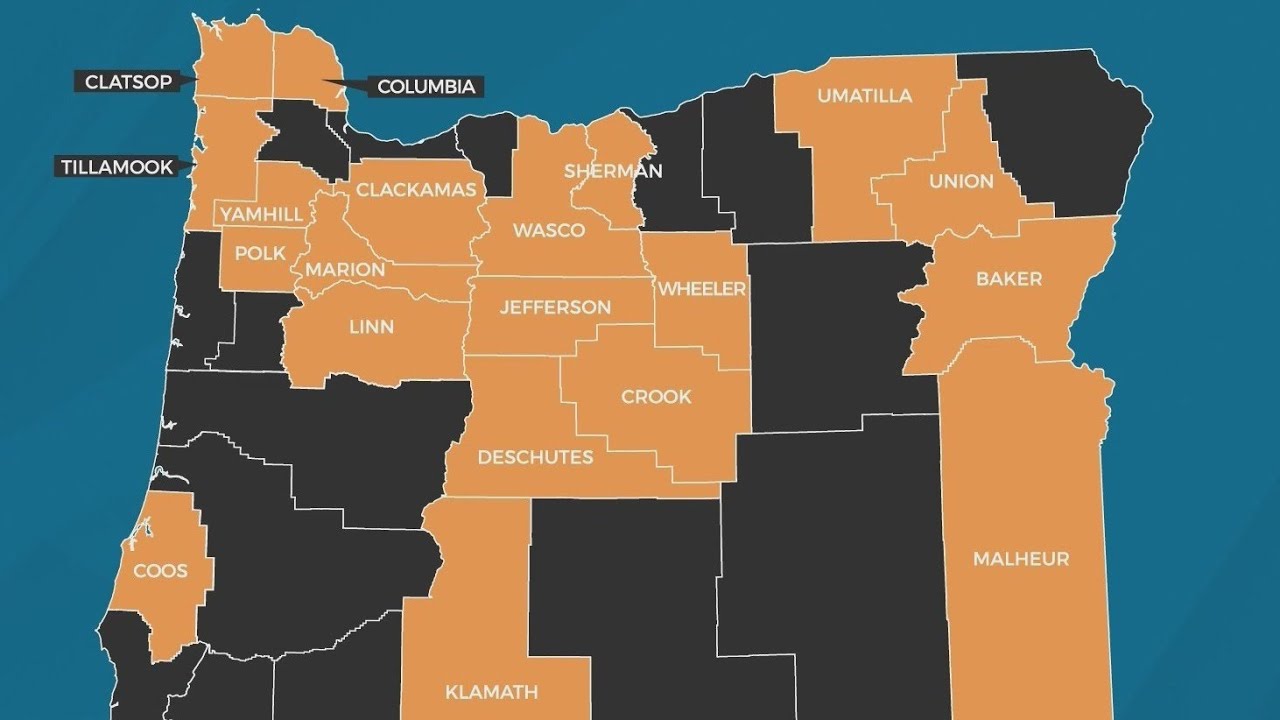PORTLAND, Ore. (KOIN) — A growing number of Oregon counties are throwing their support behind Marion County’s federal lawsuit challenging the interpretation of Oregon’s sanctuary state laws, which restrict local cooperation with federal immigration enforcement.
On Monday, Marion County officials announced that 20 of Oregon’s 36 counties had signed a letter to U.S. Attorney General Pam Bondi and Oregon Attorney General Dan Rayfield supporting the lawsuit. While the counties are not joining the case directly, they say the state’s conflicting laws have left local governments uncertain about what they can and cannot legally disclose to federal authorities.
Background: The Lawsuit at the Center of the Debate
Filed in August, the lawsuit asks a federal court to determine whether Marion County can legally turn over parole records of four individuals alleged to be undocumented immigrants. The suit names Oregon Governor Tina Kotek, Homeland Security Secretary Kristi Noem, and Acting ICE Director Todd Lyons as defendants.
Also Read
According to court filings, the case stems from a series of Immigration and Customs Enforcement (ICE) subpoenas served to Marion County on August 1, requesting records for four parolees convicted of violent crimes, including multiple rape, sexual abuse, kidnapping, and robbery charges. A fifth subpoena was later served for an individual whose identity remains unclear.
Marion County’s position is that the Oregon Sanctuary Promise Act — which limits cooperation with federal immigration enforcement — appears to conflict with both the state’s Public Records Law and federal immigration statutes.
County officials say they are not seeking to change Oregon’s sanctuary policy outright but want a judicial clarification on whether local governments risk violating state or federal law when responding to ICE subpoenas.
Counties and Sheriffs Call for Legal Clarity
The letter signed by 20 counties states, in part:
“Legal uncertainty harms everyone and benefits no one. It is currently unclear how Oregon’s Sanctuary Promise Act, Oregon’s Public Records Act, and federal laws interact and apply due to apparent conflicts, including in situations where a local government is served with an administrative subpoena.”
The counties supporting the lawsuit are not becoming official plaintiffs but are voicing solidarity with Marion County’s request for a ruling.
Their concerns echo those of the Oregon State Sheriff’s Association, which in late August released its own letter — signed by 34 of Oregon’s 36 sheriffs — urging clarification on how state and federal laws intersect when ICE seeks records or assistance from local agencies.
Attorney General Rayfield Defends the Sanctuary Law
In response, Oregon Attorney General Dan Rayfield reaffirmed his commitment to defending the state’s sanctuary law, saying it has already been upheld by multiple courts, including the U.S. Ninth Circuit Court of Appeals.
“Oregon’s sanctuary law allows officials to produce information in response to a judicial warrant, but an administrative subpoena from ICE is not a judicial warrant,” Rayfield said in a statement.
He added that legal challenges like Marion County’s “create fear and confusion for immigrant communities,” emphasizing that the law was designed to ensure that families “feel safe reporting crimes, sending their kids to school, and living their lives without fear of being targeted unfairly.”
Marion County: Seeking Direction, Not Defiance
Marion County Counsel Steve Elzinga defended the lawsuit, describing it as a necessary step to resolve contradictions between state and federal requirements.
“The federal and state governments disagree about when public records already provided to the media about violent criminals can be provided to federal agents,” Elzinga said. “So Marion County asked the federal court to determine what the law requires.”
The county said its intent is to remain transparent while ensuring it complies with all applicable laws. “Marion County is committed to prosecuting and holding accountable all people who commit crimes, regardless of their immigration status,” the statement added.
What Happens Next
The case, now pending in federal court, could have major implications for how Oregon’s sanctuary policies are enforced and interpreted statewide. If the court rules in favor of Marion County, local governments may gain broader authority to cooperate with ICE under certain conditions.
Meanwhile, Oregon’s Governor Tina Kotek and federal officials have declined to comment on the ongoing litigation.
As the legal battle continues, the divide between state leaders and local jurisdictions highlights a growing tension across Oregon — one centered not only on immigration enforcement but also on the balance of power between state authority and county autonomy.
Whatever the court decides, the outcome will likely shape how Oregon’s sanctuary laws are understood — and tested — for years to come.












